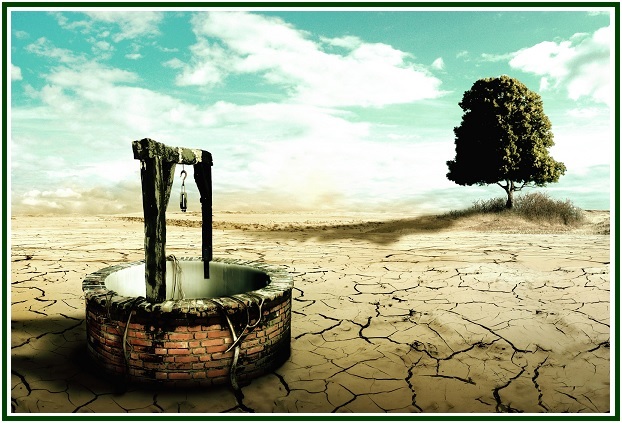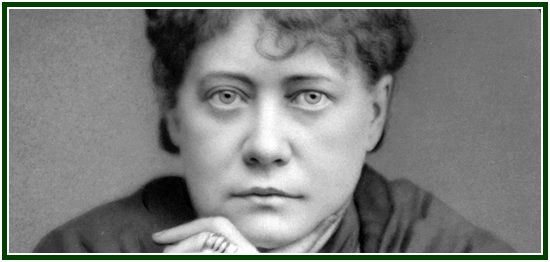
An Unpleasant Desert May Help the Pilgrim
Transcend the Narrow World of Small Things
Carlos Cardoso Aveline

* An excess of outward change makes it difficult to gather enough magnetism so as to attain and preserve inner contentment.
* A certain stability in the world of forms allows us to have peace.
* Through slow actions one naturally overcomes anxious feelings and builds lasting situations. Hurrying up is an unhealthy habit. The mental atmosphere stimulated by trees, by silence and natural environment can put us in unity with the right rhythm of life.
* The daily performance of some acts of spiritual self-discipline allows us to produce sufficient magnetic force. Some basic forms of renunciation are unavoidable.
* A regular spiritual practice expands one’s willpower and creates a blessed form of inner contentment. Through self-discipline, firmness can be achieved in spite of a constant change in external circumstances.
Water in the Desert
* In a sermon included in his Complete Works, the pioneering Franciscan Saint Anthony of Lisbon and Padua examines an important topic in Christian mysticism; the substance of the psychological desert a pilgrim must face, and the challenges the desert presents to him. [1]
* The subject is theosophical. For the student of esoteric philosophy, the challenge of the desert may seem to be a little easier than to the Franciscan friar, but in fact it is equally rigorous. The pilgrim must face the emptiness of the materialistic world and “cry out in the desert” like John the Baptist. In other words, he must make a valiant declaration of principles, he has to give his testimony, and challenge the windmills as a new Don Quixote. It is natural for him to question organized ignorance, while sharing his search and his experience.
* The pilgrim must travel “alone”. He perseveres in the right direction while facing tests and trials. In some difficult moments, he is “alone in the desert” in more ways than one. He must make firm decisions in arid circumstances.
* But the desert is also immense, and its immensity liberates the pilgrim from the narrow world of small things.
* The ocean of sand is also an ocean; it brings him to an experience of greatness and freedom. The spiritual pilgrim has to be “a stone in the desert”; in other words, it is his privilege to have and maintain a firm decision. It can build a well for drinking water in the arid environment, and this is the first step in forming an oasis.
* The pilgrim knows that the source of pure water and the oasis must both be built, above all, in his own soul.
The Unlimited Potentiality of Wisdom
* In the book “The Sabian Symbols in Astrology”, Marc Edmund Jones expands the perception of a basic fact, constantly forgotten by millions of persons around the planet.
* There is “an illimitable potentiality” in “both man and his world”, and in “the practical fruits of his efforts whenever he retains his own unconditioned uniqueness of make-up and is alert to whatever opportunities arise in his particular milieu and permit his own special destiny to fulfill itself.” (p.173, lower half)
* “The soul’s ultimate self-realization” occurs “through a basic integrity of its own insights or judgments”, and an unchallenged acceptance of “its particular role in human affairs”. (p. 173, upper half) [2]
* As a thinker, Marc Edmund Jones is more important than famous. He played a key role in making Astrology show the positive side of life and helped it become a healing tool in the life of souls. He showed the future can be actively built, rather than merely foreseen.
NOTES:
[1] “Obras Completas”, Santo António de Lisboa, a two-volume edition in Latin and Portuguese; Lello & Irmão, Editores, Porto, Portugal, 1987, see volume I, pp. 80 to 85. Anthony of Lisbon and Padua was born in Portugal between the year 1190 and the year 1195, and lived until 1231.
[2] “The Sabian Symbols in Astrology”, Dr. Marc Edmund Jones, Aurora Press, Santa Fe, New Mexico, first edition, 1993, 437 pages.
000
The article “Thoughts Along the Road – 70” was published as an independent item in the associated websites on 6 July 2023. An initial version of it is part of the May 2021 edition of “The Aquarian Theosophist”, pp. 16-17. The text now includes the note “The Unlimited Potentiality of Wisdom”, written by the same author and initially published in the May 2021 “Aquarian” (p. 3).
000
Read more:
* Other writings of Carlos Cardoso Aveline.
000
Print the texts you study from the associated websites. Reading on paper helps us attain a deeper view of philosophical texts. When studying a printed text, the reader can underline sentences and make handwritten comments in the margins that link the ideas to his personal reality.
000

Helena Blavatsky (photo) wrote these words: “Deserve, then desire”.
000